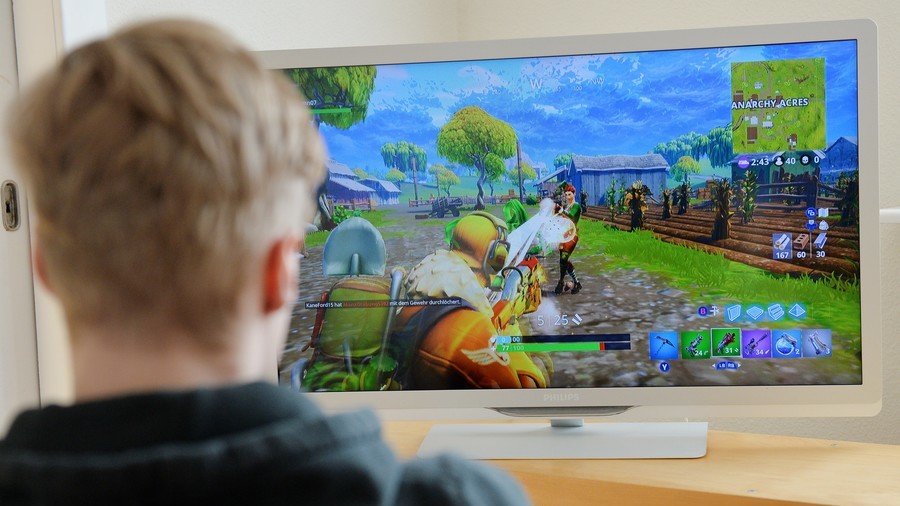Teenage boy becomes first to be treated on NHS for addiction to online gaming

A teenage boy has been treated for an internet addiction. It is the first time that the NHS has diagnosed such a condition, with statistics showing that it may be a growing problem in Britain.
The 15-year-old son of Kendal Parmar from North London became so addicted to online gaming that he lost confidence in himself and went a whole year without going to school. Ultimately, the teenager spent eight weeks in hospital recovering from his addiction – a UK first.
“I call it a silent addiction,” Parmar told the Telegraph. “If you were shooting up in a park, everyone would care a lot more because it disrupts society. If he was drunk and driving a motorbike, everyone would care. But no-one cares if he is sitting in his bedroom.”
Parmar has been fighting to get her son’s condition recognized by the NHS for three years. Private treatment for her child would have cost upwards £350 ($470) per session.
She described how her family, which includes another four children, has become invisible to her addicted son. “Every moment he’s awake, he wants to be on a game. There is no outside world. It has become all-consuming,” said Parmar, who co-founded Untapped AI, which supports people online in work and at home.
She said her son used to be extremely sociable and excel at school, and had also captained the county rugby and cricket teams. But the game stripped him of his gifted talents.
“I knew it was addictive [at the beginning] when he was online instead of doing his homework. He started to be an addict and avoided the real world,” she recalled.
“He has great mates [in other gamers online] and he is having fun running virtual worlds and non-existent kingdoms but it’s not real. It’s become so real that there’s nothing outside it anymore.”
While the case is the first of its kind in the UK, the World Health Organization (WHO) has already classified internet gaming as a mental health disorder. It is thought that thousands of people in the UK suffer from similar issues, as new studies show that four percent of adolescents are clinically at risk of addiction.
The disorder has been linked to the overwhelming prevalence of the internet in young people’s lives. Figures from the Office for National Statistics (OFS) reveal almost every person, 99 percent aged between 16-34, was online in 2018.
Experts now warn of the ease with which one can get online, with a leading addiction treatment firm, UK Addiction Treatment (UKAT), stating that one-in-three cases this year related to an internet-based dependency.
“Recovery from internet addiction cannot be achieved through abstinence; it is not something we encourage patients to go ‘cold turkey’ from. Focus should be on moderation and controlled use,” Dr Mateen Durrani, a general adult psychiatrist at UKAT, said, the Irish News reports.
If you like this story, share it with a friend!
















